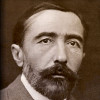“ When a man of fortune spends his revenue chiefly in hospitality, he shares the greater part of it with his friends and companions ”
Adam Smith, The Wealth of Nations (1776). copy citation
| Author | Adam Smith |
|---|---|
| Source | The Wealth of Nations |
| Topic | hospitality sharing |
| Date | 1776 |
| Language | English |
| Reference | An Inquiry into the Nature and Causes of the Wealth of Nations |
| Note | |
| Weblink | http://www.gutenberg.org/files/3300/3300-h/3300-h.htm |
Context
“In the one way, therefore, it increases, in the other it does not increase the exchangeable value of the annual produce of the land and labour of the country.
I would not, however, by all this, be understood to mean, that the one species of expense always betokens a more liberal or generous spirit than the other. When a man of fortune spends his revenue chiefly in hospitality, he shares the greater part of it with his friends and companions; but when he employs it in purchasing such durable commodities, he often spends the whole upon his own person, and gives nothing to any body without an equivalent. The latter species of expense, therefore, especially when directed towards frivolous objects, the little ornaments of dress and furniture, jewels, trinkets, gew-gaws, frequently indicates, not only a trifling, but a base and selfish disposition.”
source


